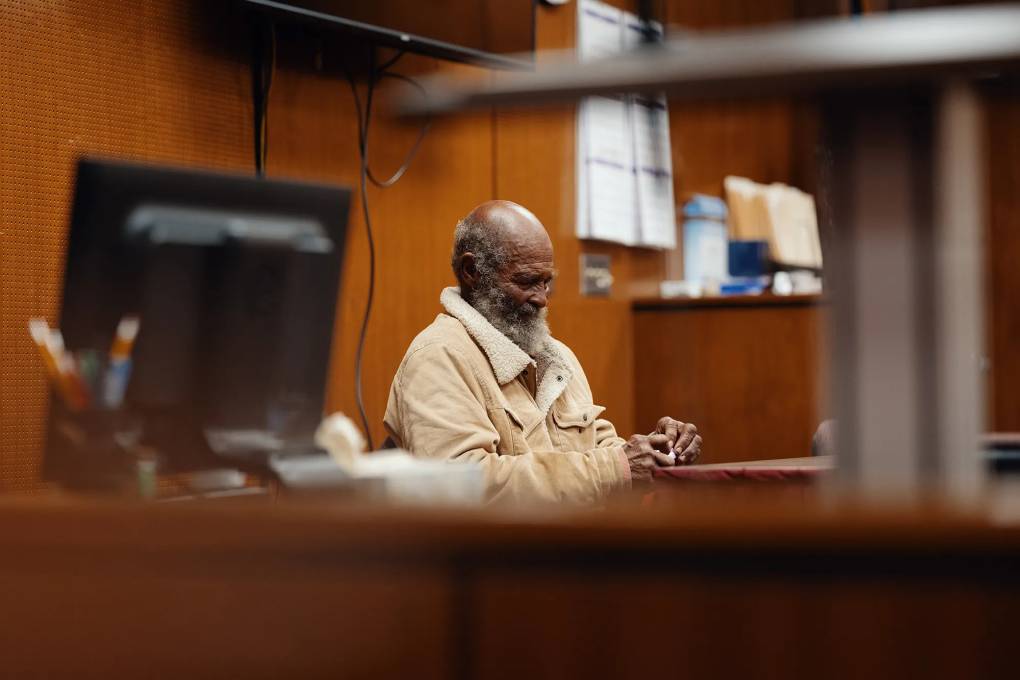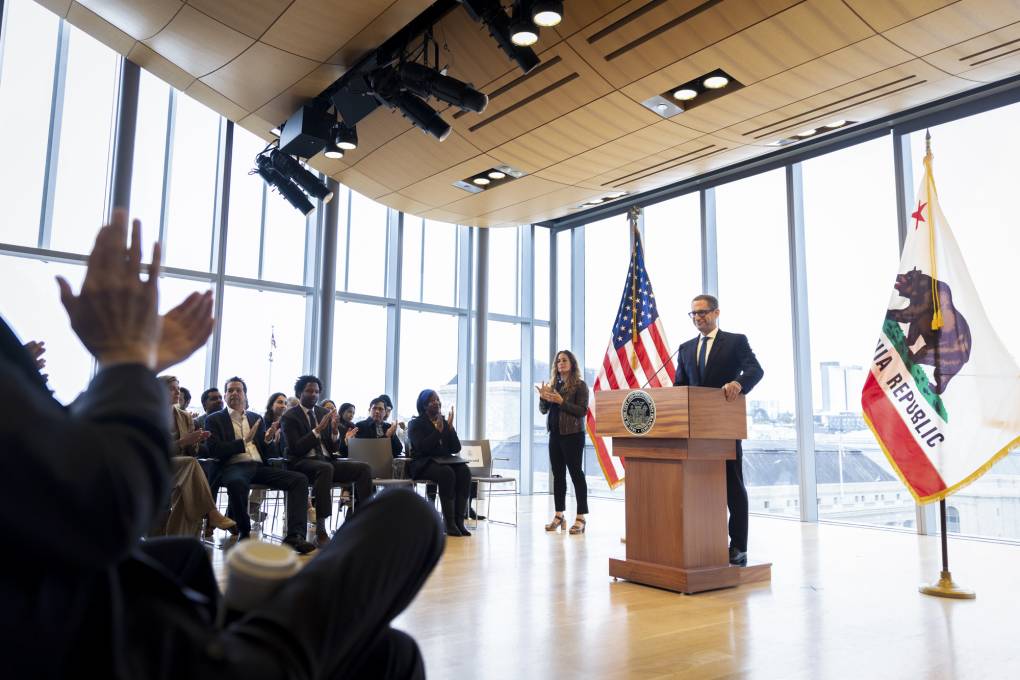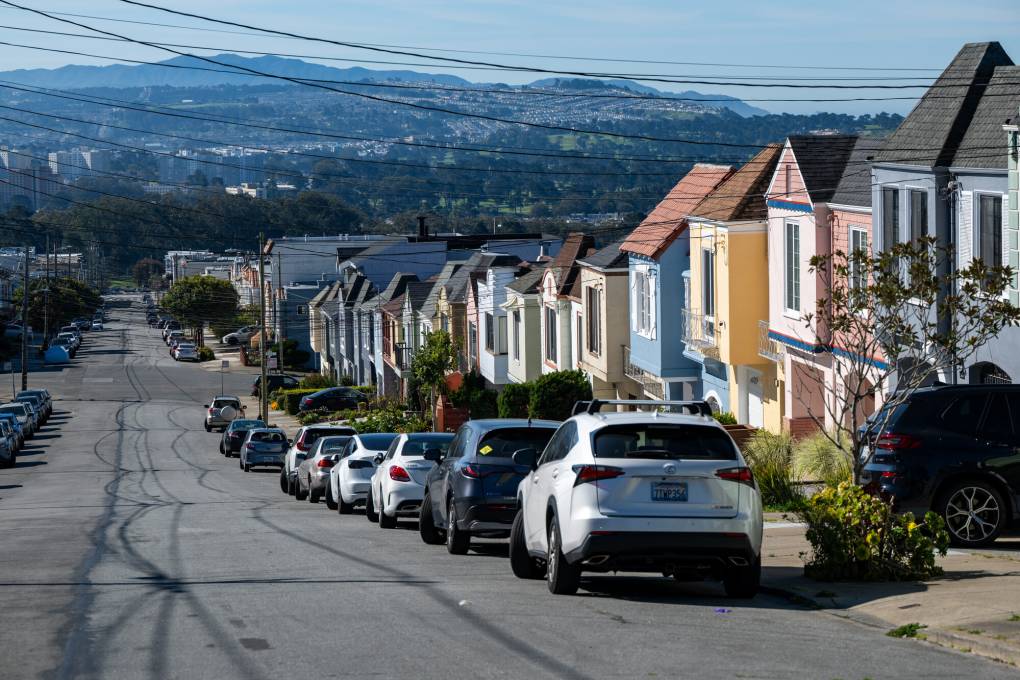This week’s California Report Magazine features a conversation with KPCC reporter Jill Replogle, whose three-part series “Home Is Life” is the opening season of the new LAist podcast Imperfect Paradise. We hear excerpts from Episode 2, which explores the battle in Fullerton over an effort to build a new apartment complex to get unhoused people off the street.
How to get unhoused people into stable housing is a question cities across California are grappling with. But the problem isn’t always finding land or money to build permanent supportive housing — often, it’s the neighbors.
David Gillanders runs an organization called Pathways of Hope, which works to end homelessness and hunger in Orange County. He was frustrated with the limits of services for unhoused people, which tend to go not much beyond things like church soup kitchens and clothing drives.
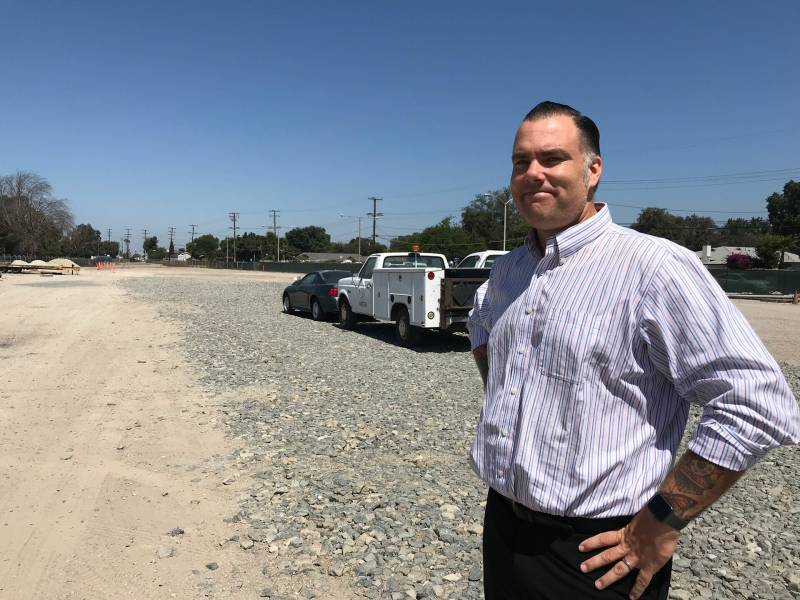
“Yes, handing out toys to families matters. Yes, everyone’s got to eat,” Gillanders said.
“But it’s literally homelessness. It’s not souplessness, you know what I mean? It’s not clotheslessness. It’s not showerlessness. It’s homelessness. Demonstrate for me how homelessness is ended with anything other than a set of keys, a lease and a place to call home.”
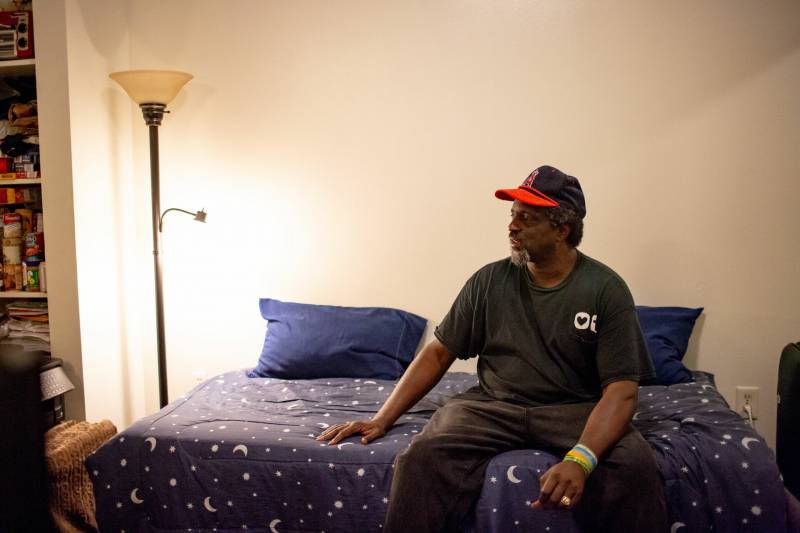
Gillanders led an initiative to build an apartment building in Fullerton to house 60 to 80 people who are chronically unhoused and have a disability, which could include mental illness or a substance abuse disorder.
In order to get it approved, the Fullerton City Council told Gillanders he’d have to convince the neighbors. But that proved harder than he thought.
“We spent a lot of money to buy homes and to get our kids to school and, you know, just to live the American dream,” said neighbor Stephanie Bromley. “We feel like our safety and our well-being is being compromised and no one’s thinking about us.”
Bromley ran a Facebook group that became a forum for complaints about people experiencing homelessness in the neighborhood. Bromley said she felt compassion for unhoused people, handing out McDonald’s gift cards to people she encounters around town asking for money. But she didn’t support the idea of formerly unhoused people living in an apartment building in her neighborhood.
“I’m concerned that we’re going to attract people from other cities and then they’re going to become our responsibility,” Bromley said.
Some Fullerton residents express more vicious takes on their unhoused neighbors.

